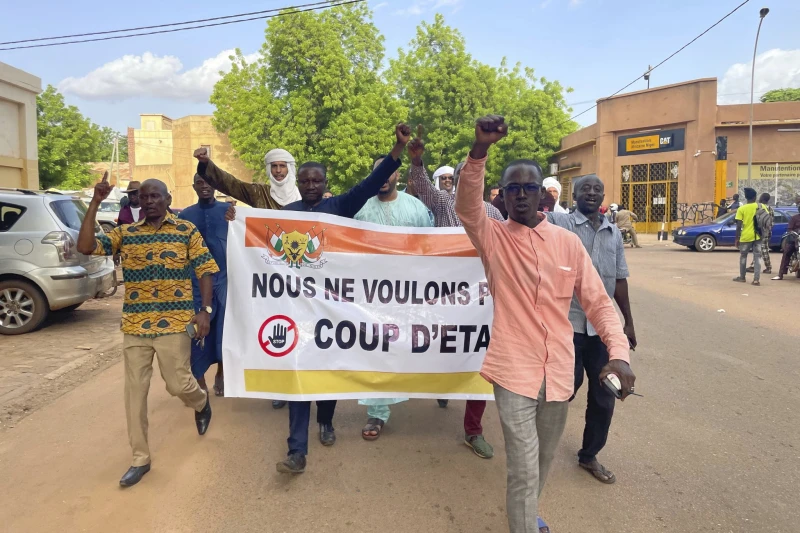Niger’s former President, Mohamed Bazoum, is set to be prosecuted on charges of “high treason” and undermining state security by mutinous soldiers. The soldiers made this announcement just hours after the junta expressed their willingness to engage in dialogue with West African nations to address the escalating regional crisis.
If found guilty, Bazoum could potentially face the death penalty, as per Niger’s penal code. Speaking on state television on Sunday night, Colonel Major Amadou Abdramane, the spokesman for the military regime, stated that they had gathered sufficient evidence to prosecute the ousted president, as well as his local and foreign accomplices, before both national and international authorities. The charges specifically accuse Bazoum of undermining both the internal and external security of Niger.
In their announcement, the mutinous soldiers claimed that prominent West African politicians and their international allies had made false accusations and attempted to derail peaceful solutions to the crisis in order to justify military intervention. These accusations were reportedly based on Bazoum’s interactions with these individuals. However, the statement did not provide specific details about the names of the Western countries involved or specify a date for the trial.
The tensions in Niger have been mounting in recent weeks, following the military’s ousting of Bazoum, who had just assumed the presidency earlier this year. The soldiers accused him of mishandling national security and failing to address the growing threat of militants in the country’s western regions. The junta argued that their actions were necessary to preserve the stability and integrity of Niger.
The decision to prosecute Bazoum comes as a blow to regional efforts seeking a peaceful resolution to the crisis. The Economic Community of West African States (ECOWAS) has already condemned the military takeover and imposed economic sanctions on Niger. They have called for the restoration of civilian rule and the immediate release of all detained political figures. The charges against Bazoum are likely to further strain the relationship between the junta and ECOWAS.
Meanwhile, international bodies such as the African Union and the United Nations continue to urge dialogue and a peaceful transition of power in Niger. They have expressed concerns about the potential escalation of violence and the impact of the crisis on the region’s stability. Several Western countries have also voiced their disapproval of the military’s actions and have called for a return to constitutional order.
It remains to be seen how this latest development will impact the political and security situation in Niger. As the trial of Bazoum looms, the spotlight will be on the military regime to ensure a fair and transparent process. The outcome of these proceedings will not only determine the fate of the former president but also shape the future trajectory of Niger’s governance and stability.
Image Credit: AP Photo/Sam Mednick




